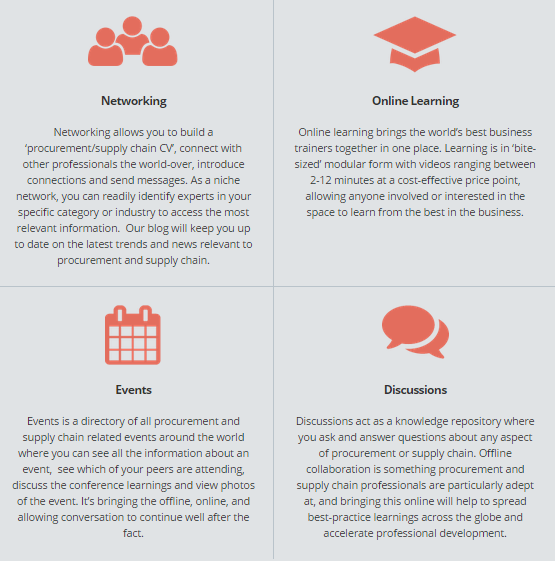
by Fronetics | Nov 19, 2014 | Blog, Leadership, Marketing, Social Media, Strategy, Talent

Networking is often thought of as a (dreaded) job search action item. However, thinking about networking in this manner will leave you at a disadvantage. Networking is an action item necessary for your professional and personal growth.
Those who view networking as more than just a job search must, gain a competitive edge over those who turn to networking only when they are making a job/career change. Glen Llopis puts it this way:
“The more you procrastinate, the more you will find yourself disconnected from the opportunities that may potentially advance your career or allow you to meet the right people.”
How and why does networking matter? Here are five reasons why networking is essential and why connections matter:
- Research has shown that the larger the network, the larger the salary
- Networks beget jobs
- Networks bring opportunities that benefit and feed your career, professional development, and personal interests.
- Networks make people smarter
- Networks make people happy
Moreover, Kathryn Minshew, founder and CEO of The Muse and The Daily Muse, points out that:
“Networks are powerful, and when done right leave you surrounded by a core of individuals who are all rooting for your success and happy to help you.”
One of the greatest networking tools for professionals is LinkedIn. So before you begin, make sure you optimize your LinkedIn profile for success.

by Fronetics | Nov 13, 2014 | Blog, Marketing, Social Media, Strategy, Supply Chain

Founded in 1997, Cerasis is a top North American third party logistics company offering logistics solutions with a strong focus on LTL freight management. For 15 years the company utilized traditional marketing strategies – placing ads in glossy industry publications (print) and relying heavily on referrals. This strategy was effective. The company acquired new customers, retained current customer, and realized positive growth. However, Cerasis was not attracting larger and more sophisticated shippers, and brand awareness was low. Moreover, Cerasis was not perceived as a leader within the industry. The company recognized that in order to catch the attention of their preferred customers, increase brand awareness, and be perceived as a leader within the industry they needed to make substantial changes to their marketing strategy. To overcome these challenges Cerasis decided to shift from their traditional approach to an inbound marketing strategy.
Strategy matters
Understanding that strategy is critical to success, Cerasis took the time to put a strategy in place. Taking a research-based approach to strategy development, Cerasis studied internal company data, trends, and metrics and conducted market research. Using this information Cerasis determined the type of messaging it wanted to share, identified their target audience (buyer persona), and identified the platforms it felt would be the most effective.
Adam Robinson, Director of Marketing at Cerasis, notes that the company took a measured approach:
“Once we had a strategy in place we needed to execute it. We started simply – we posted one piece of content each day.”
Revenue matters
Cerasis’ strategy paid off. Within 25 months Cerasis realized a 14% increase in revenue. This increase was directly attributable to inbound marketing. In addition this stream of revenue, the company’s sales team was able to generate revenue totaling $20 million during this period – more than double the previous two years combined. This can also be linked to the company’s inbound marketing efforts as they increased the company’s brand awareness and positioned Cerasis as a leader within the industry.
To learn more about Cerasis’s approach to inbound marketing and the results realized, download the case study: 3PL Cerasis acquires 98 new customers through inbound marketing.

by Fronetics | Nov 13, 2014 | Blog, Marketing, Social Media, Strategy, Supply Chain

Founded in 1997, Cerasis is a top North American third party logistics company offering logistics solutions with a strong focus on LTL freight management. For 15 years the company utilized traditional marketing strategies – placing ads in glossy industry publications (print) and relying heavily on referrals. This strategy was effective. The company acquired new customers, retained current customer, and realized positive growth. However, Cerasis was not attracting larger and more sophisticated shippers, and brand awareness was low. Moreover, Cerasis was not perceived as a leader within the industry. The company recognized that in order to catch the attention of their preferred customers, increase brand awareness, and be perceived as a leader within the industry they needed to make substantial changes to their marketing strategy. To overcome these challenges Cerasis decided to shift from their traditional approach to an inbound marketing strategy.
Strategy matters
Understanding that strategy is critical to success, Cerasis took the time to put a strategy in place. Taking a research-based approach to strategy development, Cerasis studied internal company data, trends, and metrics and conducted market research. Using this information Cerasis determined the type of messaging it wanted to share, identified their target audience (buyer persona), and identified the platforms it felt would be the most effective.
Adam Robinson, Director of Marketing at Cerasis, notes that the company took a measured approach:
“Once we had a strategy in place we needed to execute it. We started simply – we posted one piece of content each day.”
Revenue matters
Cerasis’ strategy paid off. Within 25 months Cerasis realized a 14% increase in revenue. This increase was directly attributable to inbound marketing. In addition this stream of revenue, the company’s sales team was able to generate revenue totaling $20 million during this period – more than double the previous two years combined. This can also be linked to the company’s inbound marketing efforts as they increased the company’s brand awareness and positioned Cerasis as a leader within the industry.
To learn more about Cerasis’s approach to inbound marketing and the results realized, download the case study: 3PL Cerasis acquires 98 new customers through inbound marketing.

by Fronetics | Nov 11, 2014 | Blog, Current Events, Marketing, Social Media, Strategy

Ello launched in beta on August 7th. By the last week in September the invite-only social network was receiving more than 50,000 invite requests per hour.
What sets Ello apart from other social networks? Ello is ad-free and doesn’t sell user data to third parties. On October 23rd Ello became a Public Benefit Corporation; therefore, making it virtually impossible for Ello to ever sell ads or user data.
The company’s manifesto points to the frustrations which were the impetus for founding Ello, and to the company’s strategic direction:
“Your social network is owned by advertisers.
Every post you share, every friend you make, and every link you follow is tracked, recorded, and converted into data. Advertisers buy your data so they can show you more ads. You are the product that’s bought and sold.
We believe there is a better way. We believe in audacity. We believe in beauty, simplicity, and transparency. We believe that the people who make things and the people who use them should be in partnership.
We believe a social network can be a tool for empowerment. Not a tool to deceive, coerce, and manipulate — but a place to connect, create, and celebrate life.
You are not a product.”
Ello’s mindset resonates. Not only are people clamoring to join the social network, investors are pounding on the door. CEO and Co-Founder Paul Budnitz told BusinessWeek:“I have every investor in the world in my inbox. Someone today offered to fly us out in a private jet to talk, and we said we’re just too busy.” Ello is only open to additional financing from backers with similar values.
What can businesses learn from Ello’s rapid rise to stardom? No one wants to be thought of as a product. If your company recognizes this and your social media strategy reflects this – you are more likely to be successful and rise to stardom (or at the very least increase your revenue).
Your company should use social media to:
- Build trust and relationships with prospects and customers;
- Engage with customers;
- Listen;
- Learn from your customers.
As Alexandra Samuel, Vice-President of Social Media at Vision Critical, recently wrote in an article for the HBR Blog Network: “Instead of relying on algorithms and ad targeting to get dollars out of their customers’ wallets, companies need to think about the value they can offer to their customers’ online lives.”

by Fronetics | Nov 11, 2014 | Blog, Current Events, Marketing, Social Media, Strategy

Ello launched in beta on August 7th. By the last week in September the invite-only social network was receiving more than 50,000 invite requests per hour.
What sets Ello apart from other social networks? Ello is ad-free and doesn’t sell user data to third parties. On October 23rd Ello became a Public Benefit Corporation; therefore, making it virtually impossible for Ello to ever sell ads or user data.
The company’s manifesto points to the frustrations which were the impetus for founding Ello, and to the company’s strategic direction:
“Your social network is owned by advertisers.
Every post you share, every friend you make, and every link you follow is tracked, recorded, and converted into data. Advertisers buy your data so they can show you more ads. You are the product that’s bought and sold.
We believe there is a better way. We believe in audacity. We believe in beauty, simplicity, and transparency. We believe that the people who make things and the people who use them should be in partnership.
We believe a social network can be a tool for empowerment. Not a tool to deceive, coerce, and manipulate — but a place to connect, create, and celebrate life.
You are not a product.”
Ello’s mindset resonates. Not only are people clamoring to join the social network, investors are pounding on the door. CEO and Co-Founder Paul Budnitz told BusinessWeek:“I have every investor in the world in my inbox. Someone today offered to fly us out in a private jet to talk, and we said we’re just too busy.” Ello is only open to additional financing from backers with similar values.
What can businesses learn from Ello’s rapid rise to stardom? No one wants to be thought of as a product. If your company recognizes this and your social media strategy reflects this – you are more likely to be successful and rise to stardom (or at the very least increase your revenue).
Your company should use social media to:
- Build trust and relationships with prospects and customers;
- Engage with customers;
- Listen;
- Learn from your customers.
As Alexandra Samuel, Vice-President of Social Media at Vision Critical, recently wrote in an article for the HBR Blog Network: “Instead of relying on algorithms and ad targeting to get dollars out of their customers’ wallets, companies need to think about the value they can offer to their customers’ online lives.”

by Fronetics | Nov 6, 2014 | Blog, Internet of Things, Marketing, Social Media, Supply Chain
I was recently introduced to a new social network: Procurious. Procurious is a niche social network and online community created for procurement and supply chain professionals. It is a wealth of information, resources, and opportunity.
Developed by procurement and supply chain professionals, Procurious offers a wealth of resources and opportunity for those within the industries. It not only includes a social networking platform which can be leveraged for networking, communication, and sharing of knowledge, it also provides a comprehensive listing of events happening throughout the globe, on-line learning, a blog, and a news feed. In short, it can be seen as a go-to resource for procurement and supply chain professionals.
Procurious is markedly global – Members come from 70+ countries. Given the global nature of the procurement and supply chain industries, the global nature of Procurious is inherently valuable. Moreover, as the supply chain industry faces a talent gap and suffers from misperceptions, Procurious puts a much needed “fresh face” on procurement.
“We know that the procurement and supply chain profession has struggled to overcome outdated stereotypes and it’s time we join forces to become more collectively valued. By empowering our future procurement and supply chain leaders, we aim to change the face of the profession from the inside out.”
Why join the network? Here are four reasons:

After a four month beta period, Procurious launched in early 2014. Since the launch, the network has realized positive growth:
- 2000+ members
- Members from 70+ Countries
- Members come from the private and public sector, including from some of the world’s largest businesses, such as: Apple, Telstra, Lloyd’s Banking Group, Alcoa, Rio Tinto, NHS, Schweppes and IBM
- 20+ online learning modules – all currently free to access
As I have discussed before, not only is it impossible for you and your business to be present on every social network, it is also not a good use of time and resources. Instead, you need to identify which social networks (or even which social network) is right for you and for business.
Procurious is worth checking out. It is free to join and, at this time, all online learning and resources are free. Register at www.procurious.com





